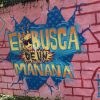Despite the existence of laws that promote, regulate and establish the teaching of environmental education in the public school system of Panama, there are great deficiencies found within the educational system in regard to this topic. The last educational guide for teachers to use on environmental education was published by the National Authority of the Environment in 2002. A revision of the guide makes clear the necessity to create new curricular guides and educational resources that not only reflect the environmental reality of Panama, but take into account the needs and learning styles of students of the 21st century.
The main objective of the 18-month project, “Environmental Education Through the Transformation of Schools into Eco-friendly and Sustainable Schools,” is to implement curricular materials and innovative educational resources through which students will be able to make their schools sustainable and environmentally friendly.
The project, which begins in March, has three specific objectives:
1) To create and submit a curricular guide for the creation of a class called “Environment” to the Ministry of Education so that the country can comply with Law 10, enacted on June 22, 1992, stipulating that all schools must teach a course on the environment.
2) To execute a pilot program in an after-school format to educate middle-school students about the care of the environment through the implementation of mini-projects that will help them make their schools sustainable and environmentally friendly.
3) To conduct research on the impact of a course on the environment on the knowledge and perceptions of middle-school students regarding the care and importance of the environment.
Some of the topics to be covered in the pilot program are:
The environment in Panama and around the world by engaging students to think about different environmental problems relevant to Panama and potential solutions that can be carried out by students.
The adequate use of water resources by the construction of rainwater collection, and design and use of a student-made filter and irrigation system to be used for the school garden.
Creation and maintenance of a school garden to supply the school cafeteria.
Solar energy and solar panels where students will have the chance to learn firsthand how a solar panel works and how it is installed and maintained.
Garbage classification and recycling, where students will develop a strategy to collect, classify and recycle the garbage generated by their school.
Creation of construction materials for the climatization of school classrooms, where students will create materials that will allow them to design a better climate system for their classrooms and not have to depend on air conditioning systems to refresh the school.
Students educating adults at home about the care of the environment. A fair will be conducted and projects will be presented to parents.
The program will be taught by teachers from Teach for Panama, an NGO that is affiliated with Teach for All. In addition to middle-school students, the program will be offered to three at-risk schools—one in Panama City and two in the Chiriqui province near the border with Costa Rica. The project is fully funded through a grant from the National Secretariat of Science, Technology, and Innovation, Panama’s only institution that awards grants for science.
Mariana Leon is the academic vice president, as well as vice president of the board of trustees, of Quality Leadership University. She is an EdD candidate in entrepreneurial leadership in education at the Johns Hopkins School of Education.

